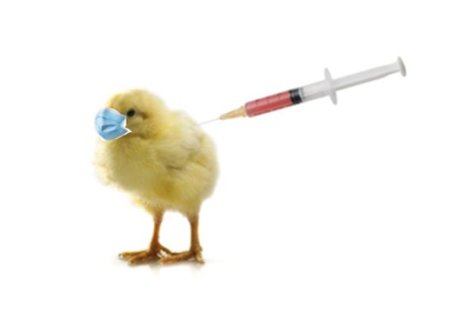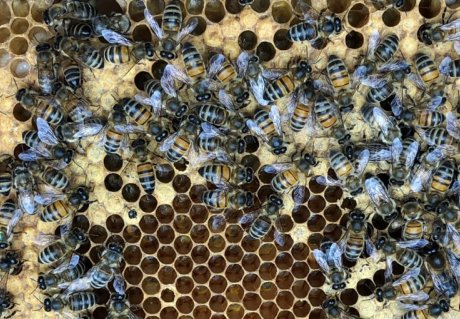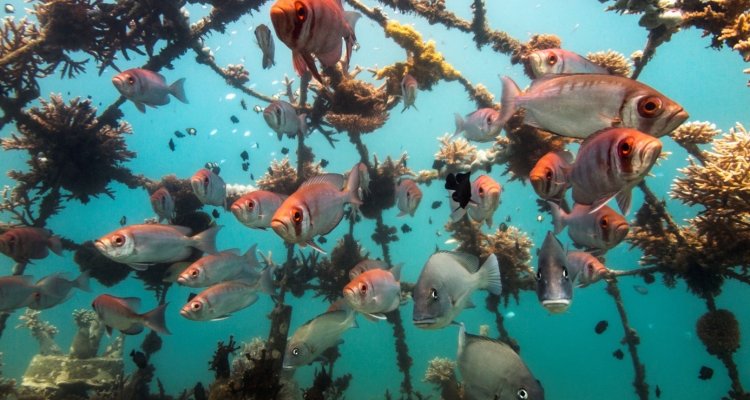
Beyond counting corals: determining and improving the ecological and social impact of coral reef restoration
WIAS Magazine - Summer edition 2022
Research Overview
The dazzlingly diverse coral reefs have provided coastal communities with numerous ecosystem services, including food provision and tourism opportunities. Despite these evident benefits, local stressors compounded by climate change have effectively eradicated roughly half of the world’s hard coral in just a few decades. In an attempt to kickstart the recovery of functional reefs, numerous projects worldwide are culturing hard corals in nurseries and outplanting grown fragments onto degraded or artificial reefs. While survival of these outplanted corals can be high, many project are set back by ecological surprises such as coral predation and competitive interactions. Furthermore, monitoring generally does not extend beyond short-term counts of surviving fragments, missing the broader ecological and social-economic impact which many projects claim to pursue. To track and improve coral reef restoration efforts, two Wageningen University PhD students are collaborating with a restoration program of the REEFolution Foundation in southern Kenya (Fig. 1). Ewout Knoester focuses on the role of ecology in modern restoration techniques and Joshua Wambugu focuses on the socio-economic context of reef restoration, including local involvement and perceived stakeholder benefits.
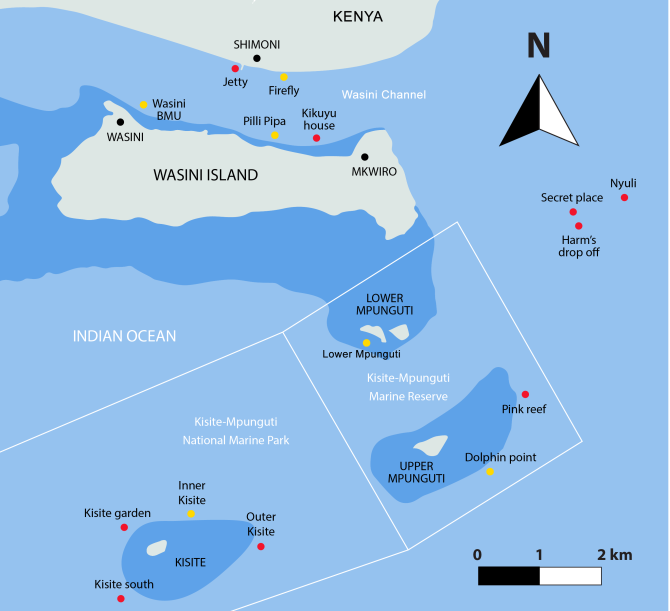
Ecology: facilitating the facilitators (Ewout Knoester)
Over the past two decades, coral reef restoration has gained momentum to address reef degradation locally (1) and attained some small-scale successes (2). However, numerous instances are known where reef restoration has been hampered by biological challenges (3). Specifically, substantial time and effort is currently spent on keeping coral nurseries free of competing fouling organisms and the survival of outplanted corals can be low because of space competition with other benthic life forms as well as coral predation. Recently, a more ecologically-integrated approach has been advocated in which insights of reef ecology are applied to improve restoration success (4) and this is the main focus of Ewout’s PhD.
The aim is to better understand the role of biological facilitators on the natural reef and use this knowledge to facilitate these facilitators in reef restoration. The PhD is divided in 3 sections and several research questions (RQs; Fig. 2). Section 1 determines the functional roles played by key grazing (RQ1) and coral-predating (RQ2) organisms on natural reefs. Section 2 uses this knowledge to identify optimal nursery locations (RQ3) by balancing the impacts of both beneficial and harmful organisms (RQ4). Section 3 applies the gained ecological knowledge to optimise artificial reef design and placement (RQ5).
To answer these questions, field experiments have been set up at six reefs in southern Kenya (Fig. 1) including remotely video-recorded buffet assays to determine roles of key organisms, placement of coral nurseries to optimize ecological interactions and deployment of several designs of artificial reefs. The artificial reefs are part of a multi-year monitoring plan on both benthic and fish community development. The project results can provide promising and conceivably costless bio-assisted techniques to improve coral reef restoration efficiency and success, thereby increasing the chances of improved livelihood conditions for coastal communities.
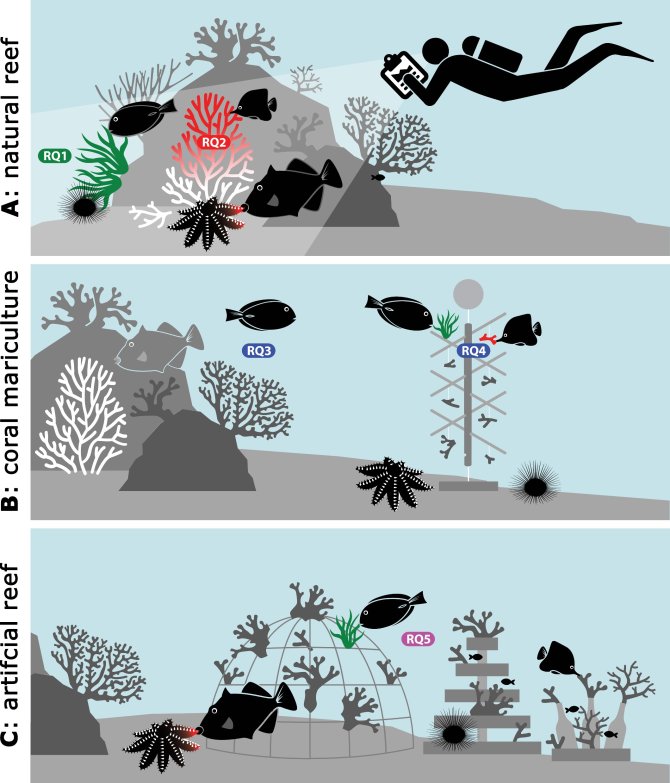
Societal impacts: beyond the reef (Joshua Wambugu)
Coastal protection, artisanal and commercial fisheries and tourism attractions are identified as crucial coral reef ecosystem goods and services supporting the wellbeing and livelihoods of many people living within the coastal zones (5). Reef restoration has become a popular conservation intervention across the world among conservationists, scientists and managers trying to restore and accelerate recovery of these degraded reef ecosystems (6,7). However, reef restoration is still a new conservation practice and young science on trial (8). The focus remains often on short-term ecological effectiveness, rather than the broader socio-economic aspects and community involvement. This bias limits the effectiveness of coral reef restoration and its societal impact as perceived by reef stakeholders (9,10), although improving wellbeing and livelihoods are often mentioned. Joshua’s PhD focus and interest is to address this gap and understand the societal impact of reef restoration, based on the restoration project in Kenya (Fig. 1).
The research is guided by the following research objectives: 1) determine whether coral reef restoration enhances coral reef ecosystem services, 2) examine reef stakeholders’ involvement, their motivation and expectation from reef restoration, 3) assess socio-economic benefits of coral reef restoration as perceived by the reef stakeholders, and 4) investigate potential alternative and sustainable livelihood opportunities for reef stakeholders and reduce the currently unsustainable fishing pressure on the reef. To achieve these objectives a combination of social science research methods (i.e., semi-structured interviews, focus group discussions, participant observation, and systematic literature review) are used to collect relevant primary and secondary data. The desired result is to understand societal impact of reef restoration and its opportunities as perceived by reef stakeholders. This is expected to contribute to the limited scientific knowledge currently available on this topic. In addition, it offers the opportunity to build a marine conservation framework to advance reef stakeholders participation in decision making on management and long-term sustainable solutions towards improving livelihoods. This research builds on Joshua’s interest on community engagement and sustainable development, particularly to support ways for realistic equity for the local communities from natural resources (Fig. 3).

Figure 3. Joshua Wambugu (on the left) interacting with subsistence fishers from Shimoni village at the shore of Wasini Channel in Shimoni, south coast of Kenya. Photo credit: Ewout Knoester
References
1. Bostrom-Einarsson L, Babcock RC, Bayraktarov E, Ceccarelli DM, Cook N, Ferse SCA, et al. Coral restoration – a systematic review of current methods, successes, failures and future directions. PLoS One. 2020;1–24.
2. Hein MY, Beeden R, Birtles A, Gardiner NM, Le Berre T, Levy J, et al. Coral restoration effectiveness: multiregional snapshots of the long-term responses of coral assemblages to restoration. Diversity. 2020;12(4):1–22.
3. Edwards AJ, Guest JR, Shafir S, Fisk D, Gomez ED, Rinkevich B, et al. Reef rehabilitation manual. St Lucia, Australia.; 2010.
4. Ladd MC, Shantz AA. Trophic interactions in coral reef restoration: a review. Food Webs [Internet]. 2020;24:e00149. Available from: https://doi.org/10.1016/j.fooweb.2020.e00149
5. Cinner JE, McClanahan TR, Graham NAJ, Daw TM, Maina J, Stead SM, et al. Vulnerability of coastal communities to key impacts of climate change on coral reef fisheries. Glob Environ Chang. 2012;22(1):12–20.
6. Rinkevich B. Rebuilding coral reefs: does active reef restoration lead to sustainable reefs? Curr Opin Environ Sustain [Internet]. 2014;7:28–36. Available from: http://linkinghub.elsevier.com/retrieve/pii/S1877343513001796
7. Hein MY, Birtles A, Willis BL, Gardiner NM, Beeden R, Marshall N. Coral restoration: socio-ecological perspectives of benefits and limitations. Biol Conserv. 2019;229(June 2018):14–25.
8. Kittinger JN, Finkbeiner EM, Glazier EW, Crowder LB. Human dimensions of coral reef social-ecological systems. Ecol Soc. 2012;17(4).
9. Hein MY, Willis BL, Beeden R, Birtles A. The need for broader ecological and socioeconomic tools to evaluate the effectiveness of coral restoration programs. Restor Ecol. 2017;25(6):873–83.
10. Kittinger JN, Bambico TM, Minton D, Miller A, Mejia M, Kalei N, et al. Restoring ecosystems, restoring community: socioeconomic and cultural dimensions of a community-based coral reef restoration project. Reg Environ Chang. 2016;16(2):301–13.



